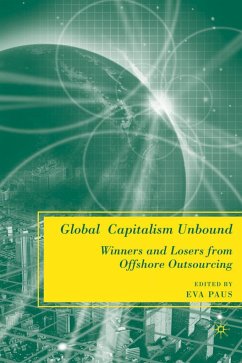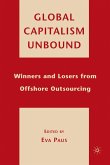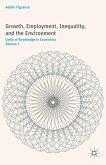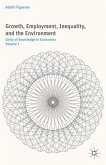Leading experts analyze the impact of the rapid growth of offshore outsourcing in manufacturing and IT. For some it promises more rapid economic growth and for some developing countries it is an opportunity to leapfrog, while others are sidelined but it also means labour and governments may lose bargaining power vis-à-vis globally mobile capital.
'In a world where goods and services move more freely than the workers who produce them, globalization means offshore outsourcing. This book is essential for anyone who wants to understand this phenomenon and the debates over what to do about it.' - James K. Boyce, University of Massachusetts, Amherst, USA
'The global labour market has doubled over the past two decades.' An innocent-sounding observation, but it captures the dynamic of one of the great transformations of our time. This book illuminates how it has happened, and how its effects amount to a veritable political-economic 'climate change'. The doubling has brought more opportunities, higher average incomes, and political enfranchisement for billions of people; on the other hand, it has also brought heightened economic insecurity, distress migration, quests for status spilling across continents, the ascendancy of capital, and governments of all kinds 'reforming' the welfare state into an instrument of labourcontrol. The book goes beyond analysis to suggest how in practical terms those who 'think for the world' should respond, including how to redistribute capital income without undermining investment, and how to increase the spillovers from foreign investment.' - Robert H. Wade, Professor of International Political Economy, London School of Economics and Political Science, UK
'The global labour market has doubled over the past two decades.' An innocent-sounding observation, but it captures the dynamic of one of the great transformations of our time. This book illuminates how it has happened, and how its effects amount to a veritable political-economic 'climate change'. The doubling has brought more opportunities, higher average incomes, and political enfranchisement for billions of people; on the other hand, it has also brought heightened economic insecurity, distress migration, quests for status spilling across continents, the ascendancy of capital, and governments of all kinds 'reforming' the welfare state into an instrument of labourcontrol. The book goes beyond analysis to suggest how in practical terms those who 'think for the world' should respond, including how to redistribute capital income without undermining investment, and how to increase the spillovers from foreign investment.' - Robert H. Wade, Professor of International Political Economy, London School of Economics and Political Science, UK








